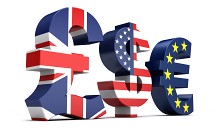Hamburg is the second largest city in Germany (pop. 1.7 million), a major hub situated on the River Elbe, nestled between the states of Schleswig-Holstein and Lower Saxony. Although a major port, it lies 130km inland from the North Sea.
Why? As an outward-looking city, Hamburg is an ideal location, says Angela Merkel. It has maintained trading links around the world for centuries, and today is home to the headquarters of industrial heavyweights Airbus and Unilever, among others. It can also boast at being ranked 18th among world cities for its livability.
Famous for? A city of bridges (around 2,500), Hamburg boasts what was once the world’s tallest building, the 122-metre Church of St Nicholas. Bombed heavily by Allied forces in WW2, the city recovered to become once again an economic and cultural powerhouse, where the Beatles served their apprenticeship, and where museums and opera go hand in hand with sport and radical politics. And there’s the Reeperbahn.
Security? Some 20,000 officers have been drafted in from around Germany and beyond to address the twin challenges of potential terror attack and political protest. Temporary courtrooms and cells have been built alongside a mass holding facility for as many as 400 detainees at a time - at a cost of €750,000. A planned mass protest camp in the city’s main park has been banned.



















